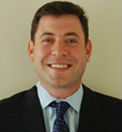Exit polls show the number one issue for voters during the 2012 election cycle was “fixing the economy.” Outsourcing, unemployment, foreclosure, credit card default and bankruptcy rates are all still too high. New technology is also making many traditional, well-paying fields obsolete (40 million people used Turbo Tax instead of their accountant last year) while creating new industries never imagined a decade ago (Is there an app for that?). Now that the speeches and campaigns are over, it is time for an all hands on deck effort to ensure America’s economic future.
Outsourcing, unemployment, foreclosure, credit card default and bankruptcy rates are all still too high. New technology is also making many traditional, well-paying fields obsolete (40 million people used Turbo Tax instead of their accountant last year) while creating new industries never imagined a decade ago (Is there an app for that?). Now that the speeches and campaigns are over, it is time for an all hands on deck effort to ensure America’s economic future.
Toward that end, policy makers would be remiss not to leverage the power of more than 26,000 afterschool and summer programs serving 8.4 million students across the United States, many who are low income and disproportionately affected by a weak economy. For decades, effective non-profit organizations such as Junior Achievement, Network for Teaching Entrepreneurship and Operation Hope have worked with banks and schools on financial literacy and entrepreneurship programs. But they should not be doing it alone. All youth serving organizations, no matter their focus, should make this issue a program priority.
At After-School All-Stars, which provides free daily afterschool programs to more than 80,000 low-income, adolescent youth in 15 cities in the United States, we recently launched our CEO (Career Exploration Opportunities) program. We have learned some interesting lessons that could be useful to other similarly-tasked programs:
First, we need to offer a holistic, experiential curriculum that connects the dots for students and explains how they might first find, get, and keep a job to earn enough money to later spend, save, invest or start their own business. Young people also want to understand how to solve business problems and use business to solve community problems. Our students particularly enjoyed culminating events which gave them the chance to put lessons into practice by running their own lemonade stands and pitching business plans.
Second, best-selling authors Dan Pink (A Whole New Mind) and Paul Tough (How Children Succeed) note that success and salary in the future economy will depend more on an individual’s grit, creativity, interpersonal skills and problem solving abilities than ever before. Successful employees are not just those who can follow orders but those who suggest solutions when problems arise. We’ve seen success in developing those skills by modifying the business school “case study method” so students become management consultant teams solving real problems faced by brand-name companies they know.
Third, it is never too early for workplace professionalism skills to be developed. In the digital age, students must learn that you cannot text your boss “CU L8R” when you are running late or post embarrassing photos of yourself on Facebook. Many current college students are learning these lessons the hard way, after it is too late.
Fourth, with so many business scandals in the news, ethical leadership is something kids – with their innate sense of fairness – understand and want to learn. The Institute of Global Ethics notes that being ethically fit requires the same kind of practice and coaching that it takes to be physically fit. Giving students the tools and space to resolve real world ethical dilemmas can be both fun and effective. Ethical questions often arise without warning. Those who are prepared are more likely to make the right split-second decisions.
Fifth, students want to meet business role models from their communities who can show them what success, hard work and different careers look like. Too often adults become mad when they ask a young person, “What do you want to be when you grow up?” and the answer is some kind of athlete or entertainer. Our CEO program encourages students to respond by asking, “Can you please let me know my options?” The time to offer numerous fieldtrips makes the afterschool hours special. Our students have loved visiting workplaces such as EBay, PayPal and Fox Sports, and interviewing executives about their lives and career paths.
If more youth development programs make preparing students for career and fiscal success a priority, America’s economic strength will certainly return.
Aaron Dworkin is committed to serving and supporting at-risk youth during out-of-school time hours. As Executive Vice-President for the ASAS National Network based in an East Coast National office in Washington D.C., Aaron works to ensure program quality, collaboration and fiscal sustainability amongst the 13 ASAS chapters across the US.



























